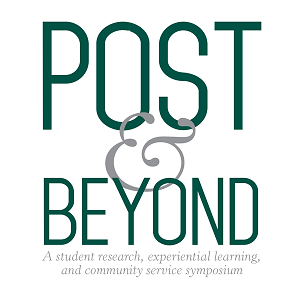Assessing the Effectiveness of a Pre-Test Educational Intervention in the Pediatric Cancer Genetic Counseling Setting
Faculty Mentor
Monika Zak
Area of Research
Genetic Counseling
Description
Introduction: Childhood cancers are the second leading cause of death in children, with approximately 9,550 cases predicted in 2025. 8.5-15% of these children have a germline mutation in a cancer predisposition gene, a proportion that increases in the context of rare, early-onset tumors. Genetic testing can guide medical management, facilitate preventative measures or surveillance, and estimate recurrence risk and risks to relatives. However, there is a lack of knowledge and understanding about genetic testing and counseling among parents, though most research on parents’ genetics knowledge has been done in the context of germline testing for research, clinical trials, and cancer survivorship programs. Methods: This study investigated parents’ genetics knowledge and preparedness for their child’s genetic counseling appointment using a mixed-methods approach with the goal to inform pre-test educational materials available at referral. A survey was distributed to parents after appointments at a pediatric cancer center in Manhattan, NY that included questions about demographics, genetics knowledge, and appointment preparedness. Responses were analyzed using descriptive statistics and thematic analysis of free-text responses. 10 parents completed the survey between November 2024 and February 2025. Conclusion: Parents reported high genetics knowledge (4.3±0.95) and preparedness scores (5.3±0.95), with 90% expressing satisfaction with the genetics services received. Chi-square analyses and Fisher’s exact tests revealed no significant associations between scores and demographic variables, although parents who felt unprepared for their child’s appointment were more likely to be unsatisfied with their genetic counseling experience (p = 0.0016). Free-text responses highlighted an appreciation of the inclusion of their child during the appointment (20%), the complexity of information relayed before and during an appointment (20%), and that referral difficulties impacted preparedness (10%). Overall, the results indicate that preparedness influences parent satisfaction, further investigation into provider referral practices is warranted, and any future educational materials should be written using accessible language.
Assessing the Effectiveness of a Pre-Test Educational Intervention in the Pediatric Cancer Genetic Counseling Setting
Introduction: Childhood cancers are the second leading cause of death in children, with approximately 9,550 cases predicted in 2025. 8.5-15% of these children have a germline mutation in a cancer predisposition gene, a proportion that increases in the context of rare, early-onset tumors. Genetic testing can guide medical management, facilitate preventative measures or surveillance, and estimate recurrence risk and risks to relatives. However, there is a lack of knowledge and understanding about genetic testing and counseling among parents, though most research on parents’ genetics knowledge has been done in the context of germline testing for research, clinical trials, and cancer survivorship programs. Methods: This study investigated parents’ genetics knowledge and preparedness for their child’s genetic counseling appointment using a mixed-methods approach with the goal to inform pre-test educational materials available at referral. A survey was distributed to parents after appointments at a pediatric cancer center in Manhattan, NY that included questions about demographics, genetics knowledge, and appointment preparedness. Responses were analyzed using descriptive statistics and thematic analysis of free-text responses. 10 parents completed the survey between November 2024 and February 2025. Conclusion: Parents reported high genetics knowledge (4.3±0.95) and preparedness scores (5.3±0.95), with 90% expressing satisfaction with the genetics services received. Chi-square analyses and Fisher’s exact tests revealed no significant associations between scores and demographic variables, although parents who felt unprepared for their child’s appointment were more likely to be unsatisfied with their genetic counseling experience (p = 0.0016). Free-text responses highlighted an appreciation of the inclusion of their child during the appointment (20%), the complexity of information relayed before and during an appointment (20%), and that referral difficulties impacted preparedness (10%). Overall, the results indicate that preparedness influences parent satisfaction, further investigation into provider referral practices is warranted, and any future educational materials should be written using accessible language.

